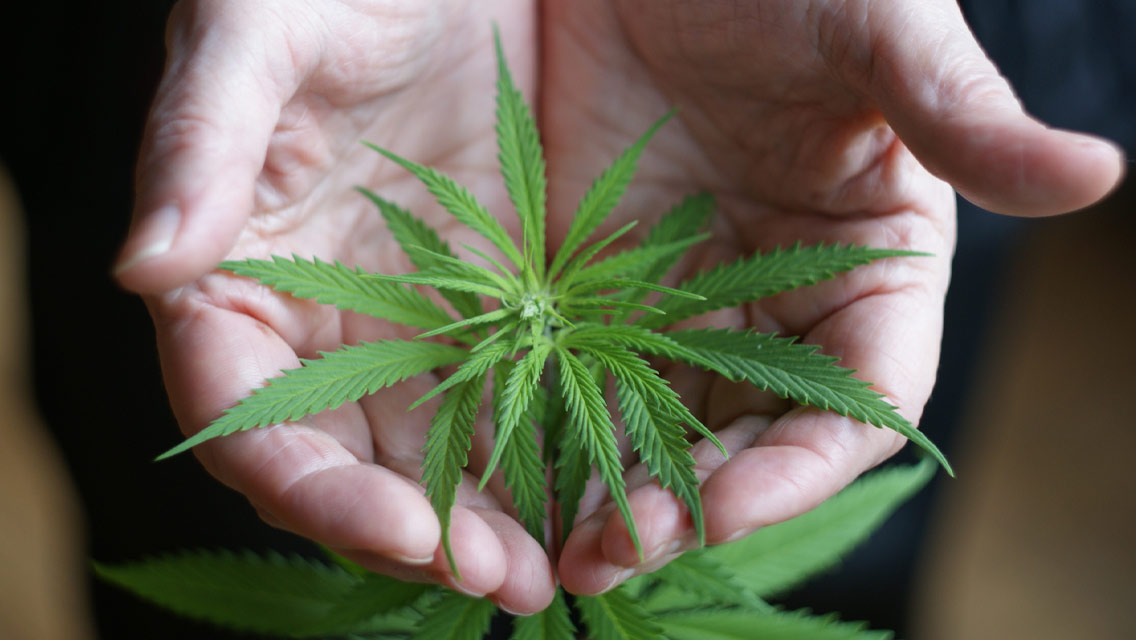Back in the 1950s, when the dangers of smoking first began to make headlines, the tobacco industry rallied behind a brilliant public relations strategy: recruit scientists to cast doubt on the research and declare a commitment to ensuring the safety of its products. Recent developments have me wondering whether our booming cannabis industry may eventually be forced to adopt a similar approach.
I bring this up in light of evidence suggesting that cannabis use — and abuse — among U.S. seniors is growing at an alarming rate and producing a precipitous rise in emergency room visits. A recent JAMA Internal Medicine survey found the percentage of respondents over the age of 65 who had used the drug in the past month had increased by nearly 46 percent between 2021 and 2023.
That increase is presumably the result of widespread legalization; 39 states and the District of Columbia now allow the sale of cannabis for medical treatment, recreational use, or both. And that legislative acceptance has altered our view of the once-vilified weed. A 2021 survey found that 44 percent of respondents believed smoking marijuana was safer than smoking cigarettes.
But mounting evidence suggests that regular cannabis usage carries some risks. As Paula Span reports in The New York Times, seniors are particularly vulnerable to the adverse effects of the weed. She describes the case of a 76-year-old woman who took some cannabis gummies to help her sleep and wound up in the ER with heart palpitations and extreme anxiety. She survived the episode, but it’s a cautionary tale, notes Benjamin Han, MD, MPH, an addiction specialist at the University of California, San Diego.
“As a geriatrician, it gives me pause,” Han tells the Times. “Our brains are more sensitive to psychoactive substances as we age.”
A couple of recent studies illustrate this trend. Han and his research team reviewed cannabis-related ER visits by seniors in California, where medical marijuana has been legal since 1996. Between 2005 and 2019, those visits increased by more than 1800 percent. Another study, focusing on seniors in Canada, which legalized cannabis for medical use in 2001, reported a 26-fold increase between 2008 and 2021. “It’s not reflective of everyone who’s using cannabis,” explains University of Ottawa public health professor Daniel Myran, MD, MPH, who led the Canadian study. “It’s capturing people with more severe patterns.”
Myran and his team also uncovered what he calls “increasing evidence of a potential effect on memory and cognition” among the patients they studied. After accounting for sociodemographic and chronic health conditions, they found that patients visiting the ER for cannabis-related issues were 23 percent more likely to develop dementia than those seeking care for other ailments and 72 percent more at risk than the general population.
None of this proves a causal relationship between cannabis consumption and cognitive dysfunction, Myran notes, but it does offer a warning. “It’s very frustrating that we’re not able to provide more individual guidance on safer modes of consumption, and on amounts of use that seem lower-risk,” he says. “It just highlights that the rapid expansion of regular cannabis use in North America is outpacing our knowledge.”
The global market for CBD, the non-psychoactive part of the cannabis plant, estimated in 2023 to be $22.8 billion, is expected to grow to $108 billion by 2030. The medical marijuana market may top $110 billion by 2032. Some experts predict a consolidation that will eventually concentrate the industry into a handful of major players, possibly including Big Tobacco giants Philip Morris and Altria Group.
And as Span points out, seniors represent a promising consumer demographic. Some retailers offer discounts to customers over 55; RISE Dispensaries in New Jersey have offered seniors field trips to their stores along with “cannabis education and empowerment” programs; and there is already research afoot to try to dispel any fears of the drug’s adverse side effects.
“If you view cannabis as medicine, you should be open to the idea that there are groups who probably shouldn’t use it and that there are potential adverse effects from it.”
Just last week, for instance, Augusta University scientists released the results of a study involving lab mice that suggest the anti-inflammatory properties of CBD may curb the development of Alzheimer’s. It’s all about rethinking the causes of dementia, explains lead study author Babak Baban, PhD, a professor in the Dental College of Georgia.
“Alzheimer’s work has long centered on plaques and tangles,” he says. “But our study shows how chronic autoinflammation is also a core driver of the disease. What’s exciting is that CBD not only calms this immune overactivation but, in earlier work, we’ve shown it can also help clear plaques and tangles through a different mechanism. Together this points to a multitarget approach with real therapeutic potential.”
Turns out that Baban and two other scientists on his team are also principals of Medicinal Cannabis of Georgia, a research firm that sells CBD inhalers. The inhalers used on the lab mice were provided by Thriftmaster Holding Group, a bioscience company that, according to its website, partners with Augusta University to provide “funding, product formulation and research support, resulting in exclusive rights to the intellectual property created by Dr. Baban’s research.”
I am hardly qualified to cast aspersions on Baban’s work or his relationship with a CBD manufacturer. And I’m in no position to question the study’s conflict-of-interest assertion that Thirftmaster played no role in the recent study’s “design, data collection and analysis, decision to publish, or preparation of the manuscript.”
But I can’t help but recall Big Tobacco’s campaign in the 1950s and beyond that kept so many of us smoking despite its well-documented dangers. We’re not there yet with cannabis — much more research is needed — but you can be sure major industry players are already drafting strategies to protect their investment.
While we wait for that to play out, it seems prudent to consider Myran’s advice: “If you view cannabis as medicine, you should be open to the idea that there are groups who probably shouldn’t use it and that there are potential adverse effects from it,” he says. “Because that is true of all medicines.”





This Post Has 0 Comments